6 big-picture NBA takeaways from deadline day
The days leading up to the 2025 NBA trade deadline were some of the wildest we've ever seen. Below, read our analysis on all of the biggest pre-deadline moves, followed by our big-picture takeaways from Feb. 6:
- Mavs trading Doncic is a move of historically baffling proportions
- Mavs gift Lakers the lifeline to end all lifelines
- Betting on Butler is a gamble. The Warriors had no choice
- Breaking down a blockbuster between Spurs, Kings, Bulls
- Trying to make sense of Raptors' move for Brandon Ingram
Trade season is alive and well
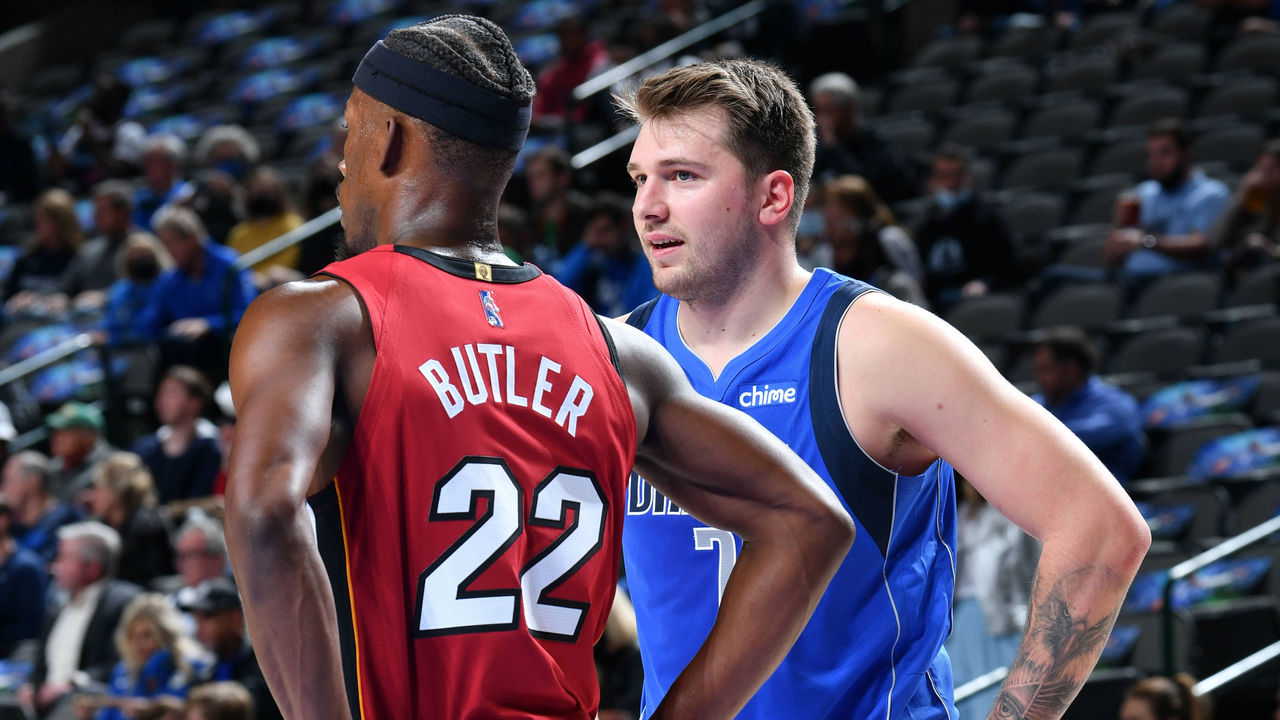
The rumor mill was slow in the lead-up to this year's deadline. The Jimmy Butler saga dragged on drearily, and apart from him, it seemed like Cam Johnson would be the biggest name to change teams. There were fears among NBA slop enthusiasts that the market was and would continue to be frozen by the restrictions on tax-apron teams codified in the new CBA.
Then the Mavericks traded Luka Doncic for Anthony Davis, and the floodgates opened. De'Aaron Fox and Zach LaVine were moved in a three-team deal, the Heat finally bit the bullet and shipped Butler off to Golden State, the Raptors jumped at the chance to acquire Brandon Ingram, and the Bucks said goodbye to Khris Middleton. That's 28 combined All-Star appearances and 16 All-NBA appearances changing hands.
Though that flurry of activity happened in the days and hours before deadline day itself, leaving only smaller marginal moves for Thursday, this has undeniably been one of the nuttiest transaction cycles in NBA history. Amazingly, in the end, Johnson didn't even end up being one of the players moved.
Every deadline is different, shaped by its own unique circumstances. We may never see another one quite like this. But at the very least, it seems safe to say that reports of trade season's demise were greatly exaggerated. - Joe Wolfond
Lakers fill their big-man vacancy ... health permitting
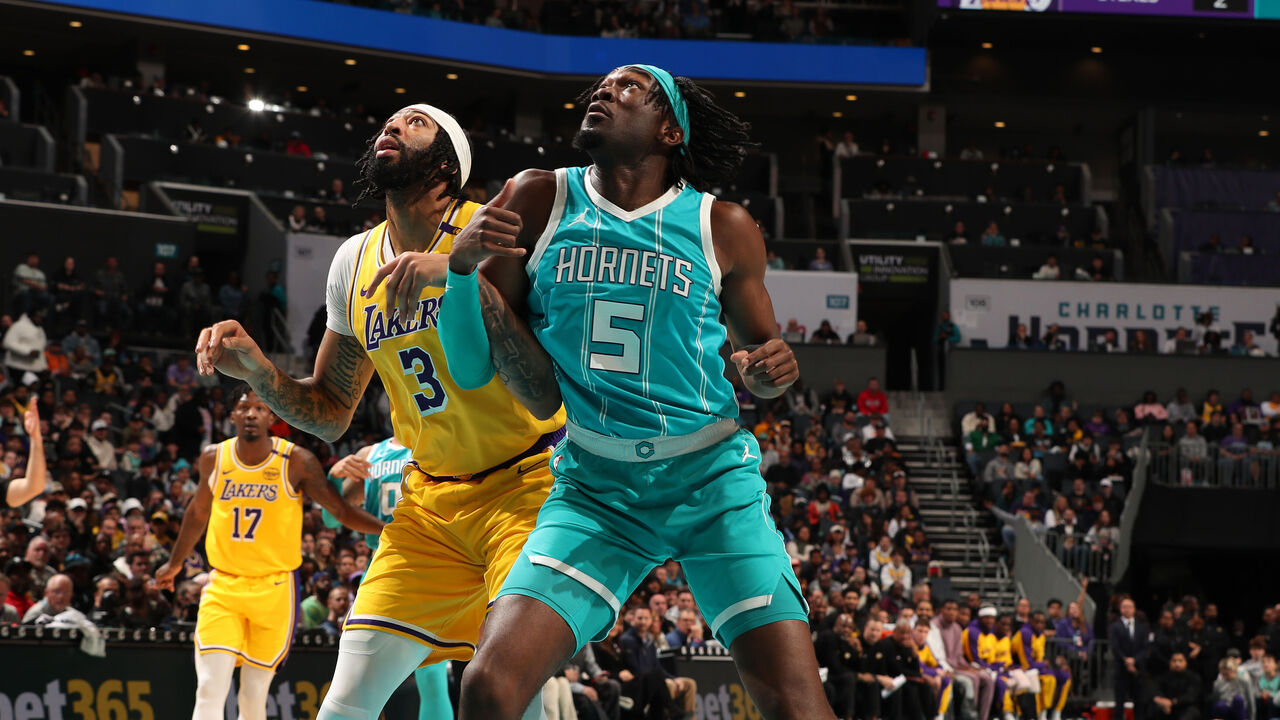
The franchise-altering trade for Luka Doncic landed the Lakers yet another era-defining superstar, but it left a short-term void in the frontcourt that they didn't have to fill immediately. They did anyway (after reportedly consulting with Doncic).
Mark Williams is exactly the kind of athletic, rim-running big man who should thrive in a two-man game with Doncic. The 23-year-old is averaging 15.6 points, 9.6 rebounds, 2.5 assists, and 1.2 blocks in 25 minutes this season, and his already solid interior efficiency should only improve when he starts catching lobs and passes from Doncic and LeBron James. The new-look lineup will be light on shooting but still offensively overwhelming with that trio, Austin Reaves, and Rui Hachimura.
There's a downside to this deal, though. For one, Williams is an inconsistent rim-protector at best, and that'll be a problem with Doncic and Reaves in front of him. Further, the Lakers also have no depth left in the short term, they moved the last first-round pick they could trade outright at the moment (2031), and they parted with their best young player (non-Doncic division) in rookie Dalton Knecht. That's a lot to surrender for a young center who's missed more games (127) than he's appeared in (85) through the first two and a half years of his career.
The Lakers are obviously the biggest overall winner of trade season with their future now tethered to Doncic, but their actual deadline-day deal has some major boom-or-bust potential.
For what it's worth, the last remaining first-round draft capital the Lakers can trade before this year's draft (at which point 2032 picks become moveable) are pick swaps in 2026 and 2028. - Joseph Casciaro
Suns' outlook gets grimmer
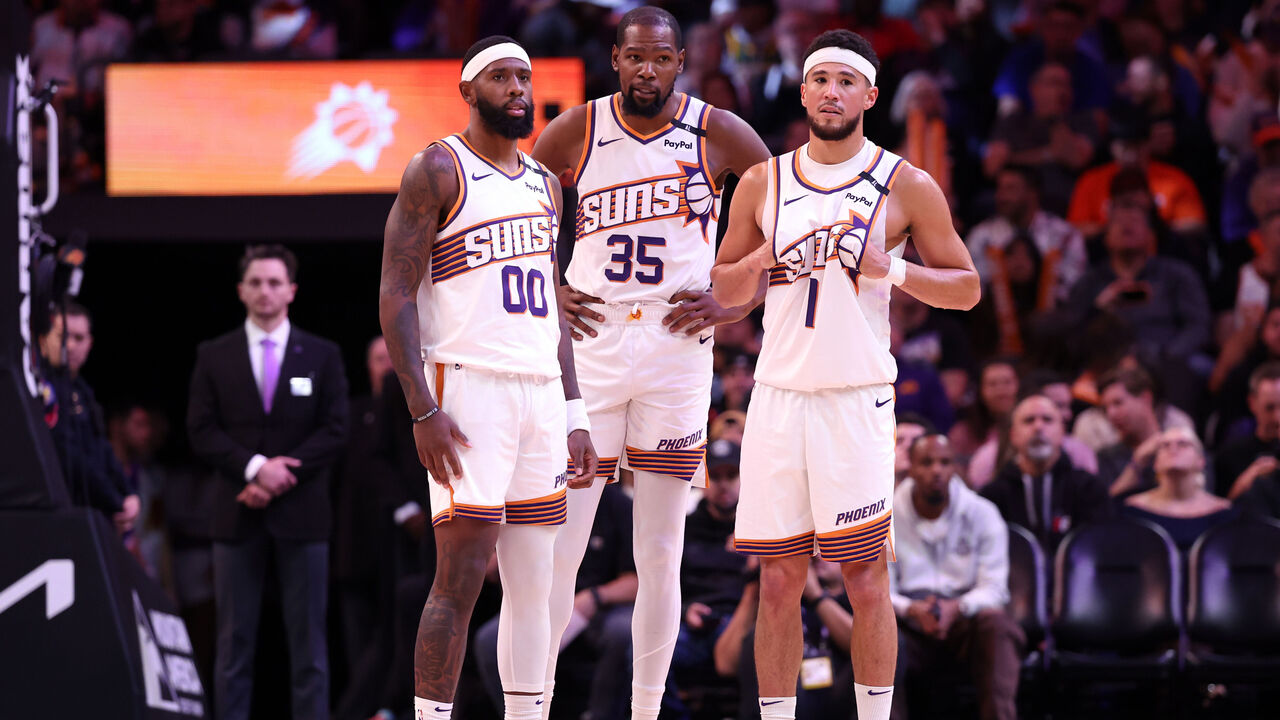
The Suns reportedly left no stone unturned in their quest to shake things up. The league's most expensive team went from hoping Bradley Beal would waive his no-trade clause to facilitate a deal for Jimmy Butler, to the possibility of replacing Kevin Durant with Butler, to even coming close to sending KD back to The Bay. All this after Phoenix traded its unprotected 2031 first-round draft pick for three protected first-rounders in an effort to land Butler (or another star).
In the end, the Suns didn't trade one of those picks to get starrier or better, but rather sent a first-rounder (the least favorable 2026 pick between Phoenix, Washington, Orlando, and Memphis) to Charlotte to get off of disgruntled and little-used center Jusuf Nurkic. If you're keeping track at home, that means the only draft capital this aging .500 team currently clinging to the West's final play-in berth has over the next seven years is a collection of pick swaps in which they'll always receive the worst pick.
As a second-apron team in tax hell, the Suns were already as all-in as a franchise could get, without the short-term success to show for it. That they turned their one remaining real draft pick into three lesser picks only to do nothing with them is another devastating blow to a recklessly assembled team now dying a slow death. - Casciaro
Cavs complete their starting 5
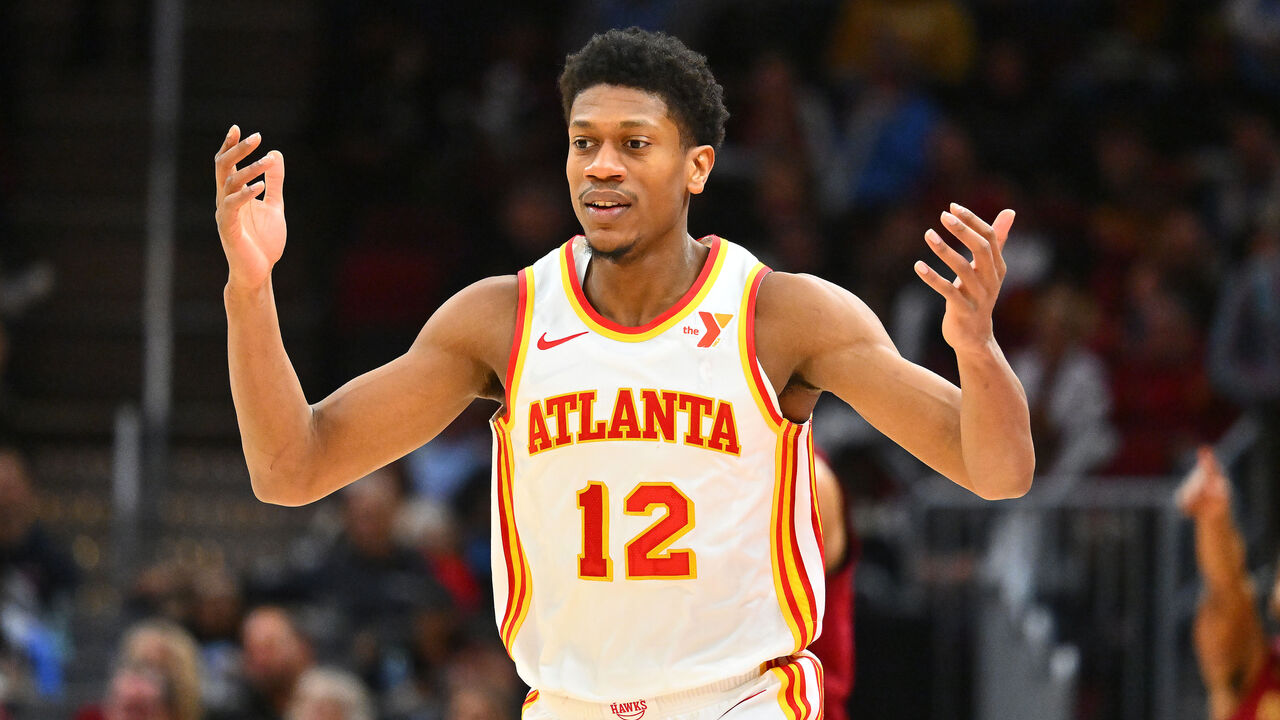
Ever since trading for Donovan Mitchell two and a half years ago, the Cavaliers have been looking for a way to effectively bridge their explosive but small backcourt with their gigantic non-shooting frontcourt. The starting small forward in between that quartet has been at various points Isaac Okoro, Caris LeVert, Max Strus, and, most effectively, Dean Wade. In acquiring De'Andre Hunter from the Hawks - with LeVert and reserve forward Georges Niang going the other way - Cleveland may have finally found a more permanent solution.
Hunter's a 6-foot-8 wing in the 3-and-D mold who's enjoying by far the best season of his career at age 27. He's the league's top bench scorer, averaging 19 points a game (nearly 24 per 36 minutes) while shooting 39.3% from 3-point range on huge volume. He's evolved into a much more streamlined decision-maker this season, shooting and attacking with conviction and force off the catch. He's nowhere near the ball-handler or playmaker LeVert is, but on a Cavs team rife with on-ball creation, his offensive skills and play style probably represent a cleaner fit.
His reputation as a defender outpaces reality - LeVert is friskier at the point of attack and more consistently engaged as a helper - but Hunter's size makes him a better matchup for the big wings of the world. Though he isn't quite the movement shooter Strus is, or the defender Wade is, he kind of blends the things those two bring to the table. And unlike LeVert, who's a pending free agent, Hunter's under contract for two more years (at a reasonable $48 million) after this one.
The Cavs have a five-game cushion atop the Eastern Conference. Pushing for an upgrade at a position of need by dealing a bundle of draft assets - three second-rounders and two secondary first-round swaps - along with two rotation players signals a strong belief in what they're capable of this season. When you consider that none of the other legitimate contenders (not Boston, OKC, New York, Memphis, Houston, or Denver) made additions at the deadline, this feels like a pretty big win for Cleveland. - Wolfond
Bucks degrade themselves for tax relief
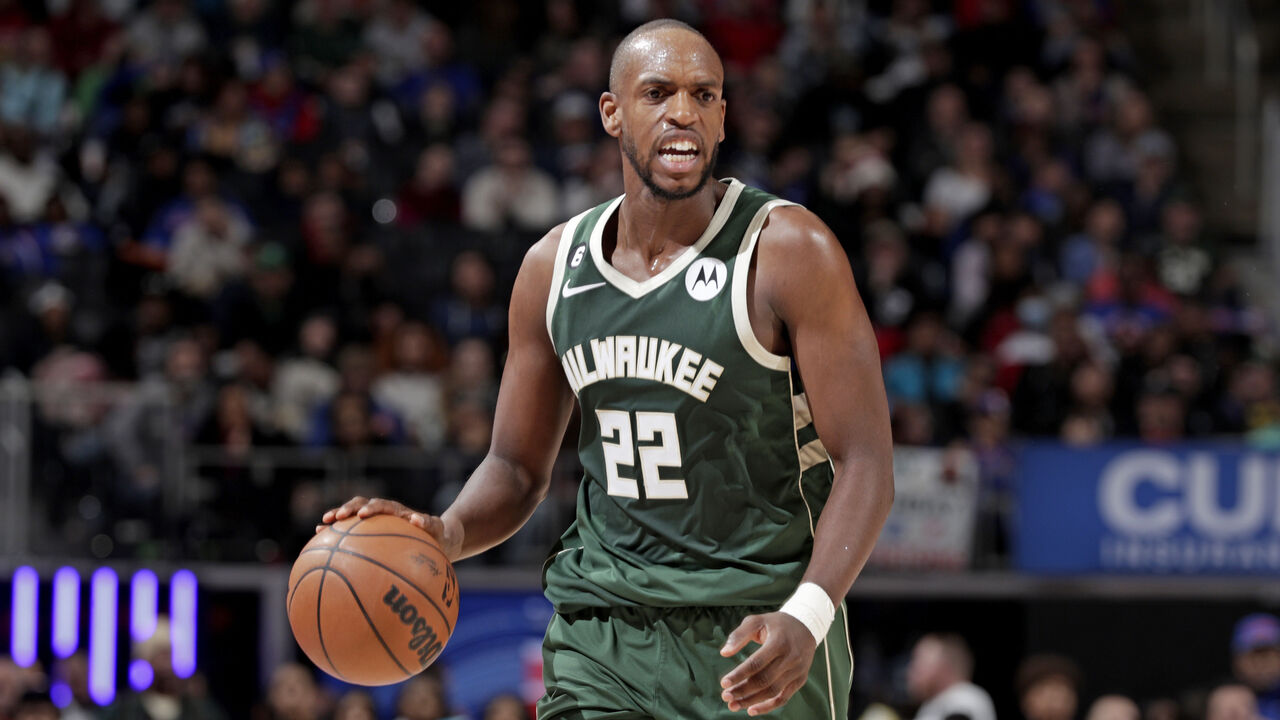
It was always a possibility Milwaukee would look to trade Khris Middleton this season, given his injury issues and physical decline, and given the pressure the team's under to win now. But to trade the franchise icon - who remains an effective player, in spite of his limitations - for Kyle Kuzma, of all people? And to throw in AJ Johnson (their 20-year-old first-round pick in last year's draft) and a 2028 pick swap to boot? Not ideal. The Bucks also got Patrick Baldwin Jr. in the trade but subsequently rerouted him to San Antonio.
Even with Middleton's diminished athleticism and deteriorating defense, he brought real value to Milwaukee this season with his shooting and playmaking. He still had amazing two-man synergy with Giannis Antetokounmpo, and still put up 63% true shooting (58% from 2-point range, 41% from deep) while averaging 23 minutes off the bench. The Bucks performed 5.3 points per 100 possessions better with him on the floor.
He obviously isn't the player he once was, but he also underwhelmed on a tight playing-time leash last regular season, and that didn't stop him from averaging 24.7 points, 9.2 rebounds, and 4.7 assists on 48/36/90 shooting across 38.3 minutes a game against the Pacers in the playoffs. He dragged that series to six hard-fought games, with Antetokounmpo out and Damian Lillard badly hobbled.
Kuzma, meanwhile, is one of the least efficient big-minute players in the league this year, posting 49% true shooting. That will probably improve significantly when he plays next to Antetokounmpo and Lillard, but Kuzma's always been a poor shooter and below-average playmaker. When he's engaged, he can be a better defender than Middleton is at this stage, but still tops out around average on that end of the floor.
The primary impetus for the deal was to shed salary. Kuzma's on a declining deal that will pay him about $13 million less than Middleton can make by picking up his player option next season. And for this season, the move gets Milwaukee below the second luxury-tax apron. The hope was that doing so would do more than just save ownership some scratch; it allowed the Bucks to aggregate salaries in subsequent trades, which they couldn't do as a second-apron team.
Unfortunately, the only subsequent trade that materialized was one that sent out MarJon Beauchamp (whose fourth-year option Milwaukee declined) in exchange for Clippers guard Kevin Porter Jr. - a ball-stopping gunner who's been even less efficient than Kuzma this season and is still under investigation by the NBA for domestic assault. There are seven qualified players this season with usage rates above 20% and true shooting percentages below 50%, and the Bucks traded for two of them.
They weren't especially likely to make a deep run this year regardless, but what they did at the deadline effectively punted whatever possibility remained. - Wolfond
Raptors zag again
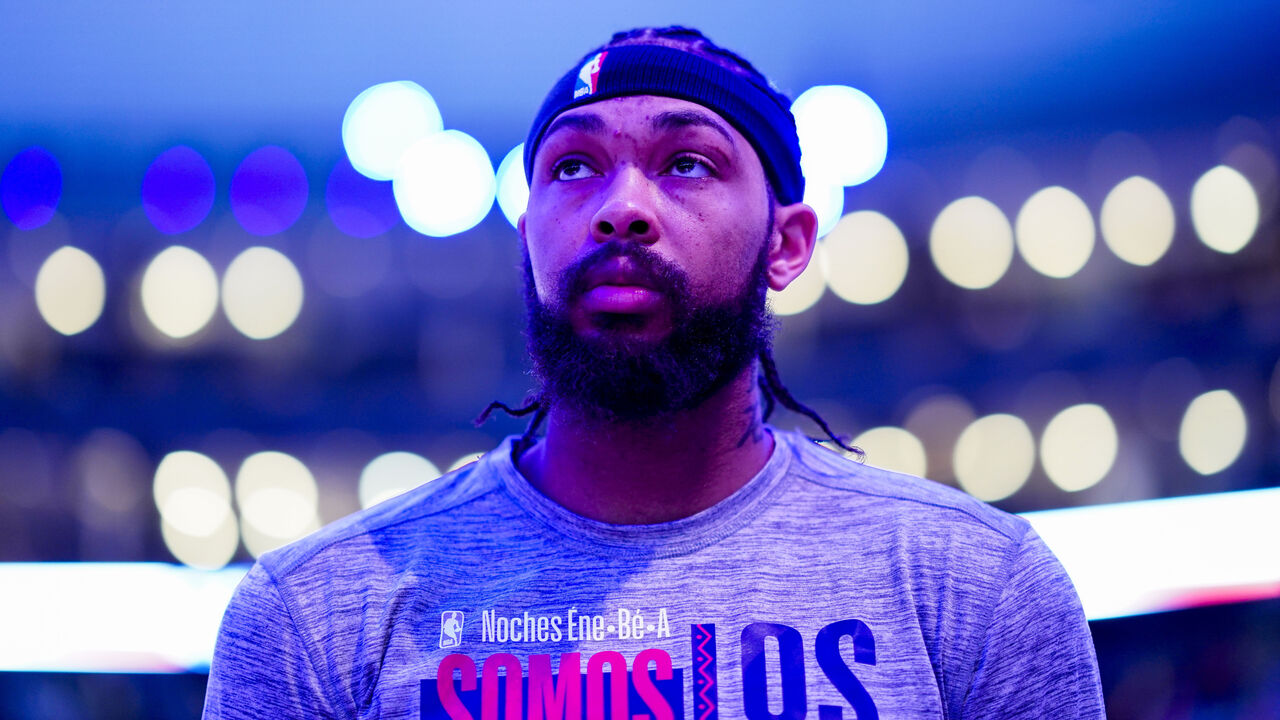
The joke's on us for assuming this was finally the year we had a good read on Toronto's deadline intentions. For the third straight year, a Raptors team sitting outside the postseason picture acted as 11th-hour buyers rather than sellers. Most perplexing of all, this year's team publicly admitted to rebuilding and prioritizing the process over the results. So, what gives?
The simple answer is that buying low on a player of Brandon Ingram's upside doesn't have to jeopardize Toronto's 2025 lottery odds. The Raptors own the league's fifth-worst record, Ingram is currently sidelined by a left ankle sprain, and the team did move three rotation players (Bruce Brown, Kelly Olynyk, and Davion Mitchell) who all played key roles in the Raptors' recent surge. If they can keep Ingram from helping them win games over the final two months of this season, and can then retain the 27-year-old on a bargain contract going forward, it's a completely defensible bet on a one-time All-Star who may not have been available to Toronto as a free agent. However, if Ingram drives down those lottery odds and gets the kind of money he reportedly wants, I don't understand the logic.
| Total outgoing | Total incoming |
|---|---|
| Bruce Brown | Brandon Ingram |
| Kelly Olynyk | P.J. Tucker |
| Davion Mitchell | 2026 2nd-rd pick (via LAL) |
| 2026 1st-rd pick (via IND) | James Wiseman (waived) |
| 2031 2nd-rd pick | Cash |
In totality, the Raptors moved two expiring contracts, got out of Olynyk's $13.4-million cap hit for next season, traded a 2026 first-rounder they originally acquired in last year's Pascal Siakam trade, and swapped second-rounders while taking a flier on Ingram without taking on any long-term salary. That's not bad business at all. But it's not what we expected, and carries more risk than feels appropriate for a 16-35 team. - Casciaro
HEADLINES
- Embiid drops season-high 39, leads 76ers past Pacers with Maxey out
- Mitchell scores 24 of his 48 points in 4th Q as Cavs come back vs. Wizards
- Morant returns from 10-game absence in Grizzlies' loss to Jazz
- The Spurs are growing up, Keegan Murray is stuck, NBA Cup matters
- The Knicks are figuring things out, and that should scare East rivals